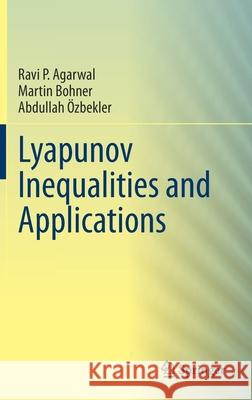Lyapunov Inequalities and Applications » książka
topmenu
Lyapunov Inequalities and Applications
ISBN-13: 9783030690281 / Angielski / Twarda / 2021 / 607 str.
Kategorie:
Kategorie BISAC:
Wydawca:
Springer
Język:
Angielski
ISBN-13:
9783030690281
Rok wydania:
2021
Wydanie:
2021
Ilość stron:
607
Waga:
1.03 kg
Wymiary:
23.39 x 15.6 x 3.33
Oprawa:
Twarda
Wolumenów:
01
Dodatkowe informacje:
Wydanie ilustrowane











